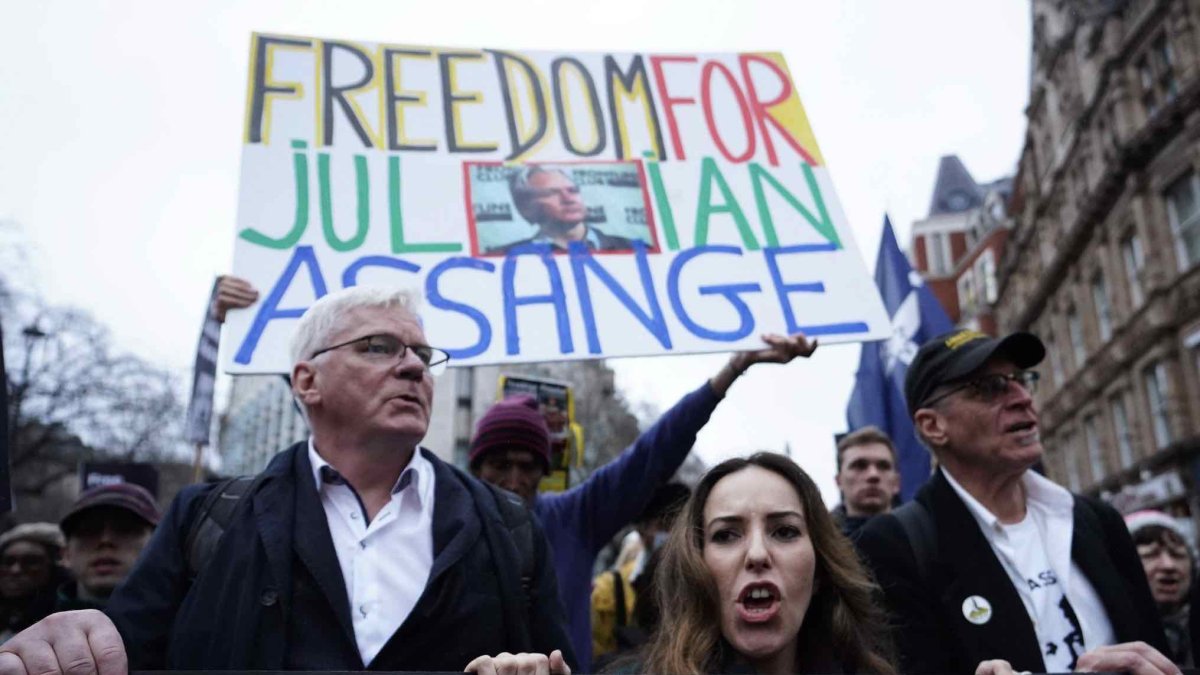WSJ: The Justice Department reportedly is negotiating a deal that would set Assange free
If the founder of WikiLeaks admits his guilt, the Department of Justice would reduce the charges brought against him in exchange.

Cordon Press.
The Department of Justice (DOJ) and Julian Assange would have reached an agreement whereby he would plead guilty to a reduced charge of manipulation of classified information and thus avoid extradition from the United Kingdom, where he is serving his sentence, to the United States.
The possible agreement, which has not yet occurred, was revealed exclusively by the Wall Street Journal, a newspaper that was able to contact people familiar with the matter. If Julian Assange manages to reach a deal, it could result in his release from British jail five years after entering prison.
"If prosecutors allow Assange to plead guilty in the United States to improper handling of classified documents, it would be a misdemeanor," the WSJ reads.
Therefore, the newspaper clarifies that with the time already served in London, Assange could obtain his freedom to close the agreement.
However, the newspaper assures, the talks "could still fail" since "any agreement would require approval from the highest levels of the Department of Justice" and that, according to Assange's lawyer, Barry Pollack, "he has not received indications that the department is going to accept a deal.
The fall of Julian Assange
Julian Assange founded WikiLeaks, a non-profit organization that became a media outlet of sorts in 2006. Four years later, in 2010, a scandal broke when authorities discovered that the website had published tens of thousands of classified U.S. government documents—information that damaged the United States' reputation and exposed the excesses that American soldiers committed during the invasion of Afghanistan.
It was just the beginning. Months later, WikiLeaks again attacked and published more than three hundred thousand leaked Pentagon papers detailing the activities carried out by the United States government in the Iraq war, as well as other operations carried out by the United States between 2004 and 2009.
Incarceration in the United Kingdom
The problems had just begun. At the same time as the situation between the Obama Government, which at first tried to minimize the leak, and Assange himself, Sweden issued an arrest warrant against him.
They accused him of sexual assault and tried to extradite him from the United Kingdom, where he was at the time. He managed to avoid this extradition, claiming that Sweden was only a transit country and that after this, they would actually send him to the United States, where they would judge him based on the leaked documents.
However, it did not prevent the United Kingdom from keeping him in prison, although for a short time—as he was granted conditional release. After this, and fearing that he would be arrested again, Assange requested political asylum at the Ecuadorian embassy in London, where he stayed until April 2019, when the Ecuadorian president, Lenín Moreno, expelled him from the embassy. By requesting asylum, Assange violated the conditional freedom granted by the British justice system.
As soon as he left, British authorities immediately arrested him for violating parole, and the Department of Justice requested his extradition to be tried in the United States, where he could face up to 175 years in prison. However, despite extradition attempts, Assange remains held in the high-security Belmarsh prison, southeast of London, where he continues to fight to reach an agreement with the Department of Justice and thus avoid extradition.

























